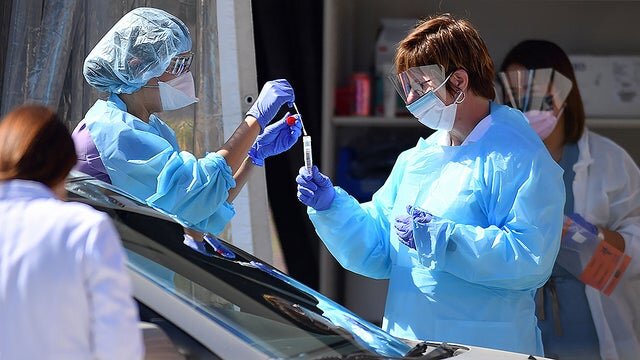Now, in the second month of the COVID-19 shutdown in Connecticut, the disconnect between what officials say about the food supply and what the economically challenged are experiencing is obvious: hundreds of people in cars lined up for bags of free groceries, half empty grocery store shelves, and food banks and pantries just flat out of food.
Officials up and down government insist the U.S. has plenty of food, including Gov. Ned Lamont, who last week called it “anxiety” about a shortage rather than an actual shortage.
“Our food supply in this state, in this country, in our food banks, is strong,” Lamont said.
Those on the ground say otherwise, and some are calling for a re-evaluation and better coordination of food systems, possibly from the state level.
For now, it’s evident the coronavirus pandemic has created massive problems and unprecedented challenges related to state and federal food policies or systems along two paths. One challenge is in maintaining the food supply itself. The other is in administering the various financial assistance streams needed to keep Connecticut and other Americans fed.
Parts of the supply chain have been threatened by COVID-19. And consumers may not be feeling the impacts of the most pronounced disruption yet - the ripple effect from the closure of several meat processing plants that closed after COVID-19 outbreaks among their workers.
Wednesday, Tyson suspended operations at its largest pork processing plant in Waterloo, Iowa. That follows Smithfield Foods shutting pork processing plants in Wisconsin and Missouri after the closure of its Sioux Falls, SD plant — one of the largest single-source COVID hotspots in the country.
There are reports of more than a dozen pork, beef and chicken plants now closed in several states including Colorado and Pennsylvania. That will likely exacerbate the potential for shortages and high prices beyond what was already occurring as shoppers cleared out grocery stores and food-strapped food banks found themselves competing with the general public in retail establishments.
Long haul trucking to get produce from the two biggest growing areas - California and Florida - has had a tough time meeting the faster purchasing pace, especially with the additional time now needed for cleaning trucks and supplies and ensuring the health of drivers traveling through COVID-19-stricken states.








